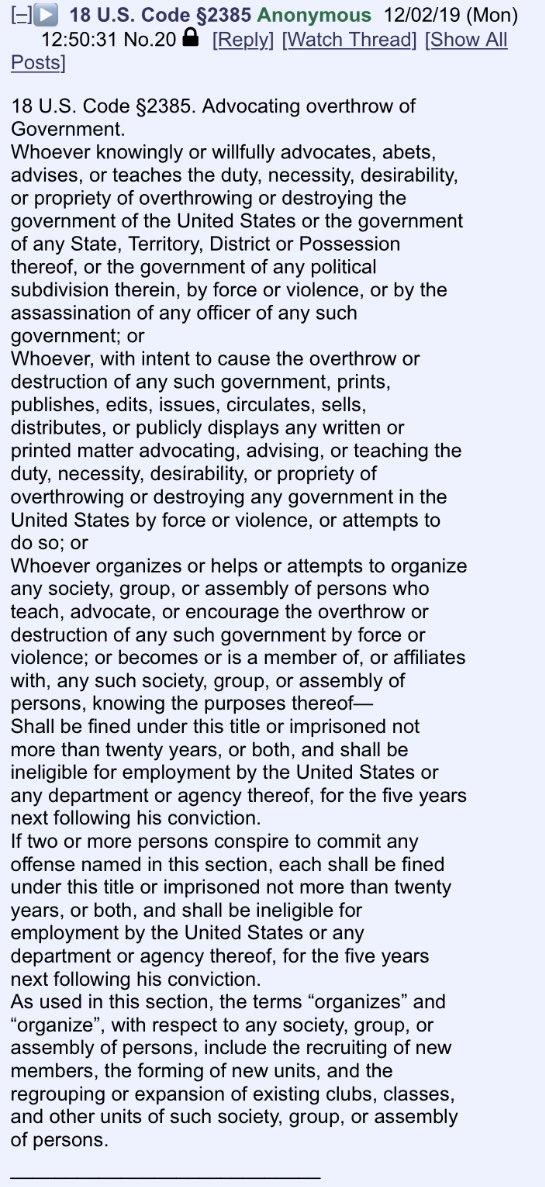nytimes.com/2019/04/16/us/…
nytimes.com/2000/10/13/wor…
Retired Navy senior chief Joe Pelly, who was aboard Cole the day it was attacked, and the dads of two fallen shipmates.
--Jesse Nieto, whose son, Engineman 2nd Class Marc Nieto, was 24.
--Tom Wibberley, whose son, Seaman Craig Wibberley, was 19.
nytimes.com/2017/03/17/us/…
nytimes.com/2019/08/22/us/…
We expect the judge to ask Nashiri if he accepts his new learned counsel. He is Anthony Natale, a former Florida federal public defender.
Also, lawyers may question the new judge, Army Col. Lanny Acosta Jr., for potential bias.
I'll update later.
Both prosecution and defense questioned the new Army judge, Colonel Acosta, and did not object to him presiding. The judge said he hasn't applied to be an immigration judge or any other DOJ position. He's been a military judge since 2015 and is stationed at Fort Hood.
One involved a soldier who slaughtered 16 Afghan civilians in 2012. nytimes.com/2013/08/24/us/…
Unclear is how much longer he'll be on the bench.
bit.ly/LannyAcosta
His active-duty orders expire early next year and the Navy has not responded to his request for an extension.
Army Brigadier General Mark Martins is still on the case.
Assistant US Attorney Mark Miller of New Orleans is still lead prosecutor. Army Colonel John Wells is back, Navy JAG Cherie Jolly has been promoted to lieutenant commander...
Also new in the court gallery today: The Pentagon has dispatched an artist from the Defense Media Activity to Gitmo to draw the proceedings.
Now the defense is entirely excluded.
nytimes.com/2019/11/08/us/…
Natale says that might not be necessary, argues the default should be negotiation between defense and prosecution.
The judge replies, isn't that the substitution process as carried out so far? Doesn't the prosecution have that prerogative?
Judge Acosta: Who makes that determination, decides the risk to national security?
Acosta: The courts aren't classification authorities.
Natale: We're not asking you to declassify. Defense have clearances too. Logistically it makes sense. The alternative is the defense challenging each summary.
Martins said nobody abused "the authorized ex-parte process" and did honor its "solemn obligation" under the law to provide discovery.
Slide 2 shows Musacchio v United States.
BG Martins says "we respectfully disagree" with Judge Acosta on his analysis of the judge's prerogative in the substitution process.
He invokes "need to know."
Slide 9 invokes Yunis, says it shows the executive not the judiciary, is best positioned to make these decisions.
Slide 10: Security Executive Agent Directive 4.
Martins: This is very healthy. There are nuances.
Martins says his side spent 5 years working within it, and they intend to file a new declaration.
As in, they get ex parte too, to explain possible defense theories.
He's skipping slides, up to 19, picking apart the defense brief.
BG Martins: We disagree with you that our declarations expired but are getting a new omnibus one. "That's happening." Meantime, "to the extent necessary" must build on the other parts of the statute.
Prosecutor Martins declined "in this forum" to say.
Judge: You can't even provide a number?
Martins: Not in this forum.
Also, the general says, Nashiri has yet to challenge his status as an unprivileged enemy belligerent.
Judge Acosta tries again: Is it you or the Original Classification Authority or, as he calls it, OCA*?
*Generally means CIA.
Judge Acosta: You, in consultation with the stakeholder?
BG Martins: In consultation with the original OCA and we look at it through the lens of commission rulings.
BG Martins: There are treasures the nation needs to safeguard.
Judge Acosta is trying to sort the process. When prosecutors can give them classified info, when they go to the judge.
Judge Acosta wants to understand "these rules of thumb."
(While the "witnesses" were still in the black sites.)
Judge Acosta: Can they appeal summaries?
BG Martins: No, but they can ask us for information they find lacking.
...And he draws an admonition from the judge. Col. Acosta says he's told both sides that he doesn't want to hear this, look back, wants to move forward.
Defense lawyers want more discovery on the episode. Prosecutor Mark Miller says he received the discovery request but, if there is supposed to be collegiality, the defense should accept his side's word that they didn't read it.
It was disclosed today in court that prosecutors said they "inadvertently received" an ex-parte "defense presentation" to the judge, sounds like from October 2014, who "immediately destroyed" it.
The defense want more details.










